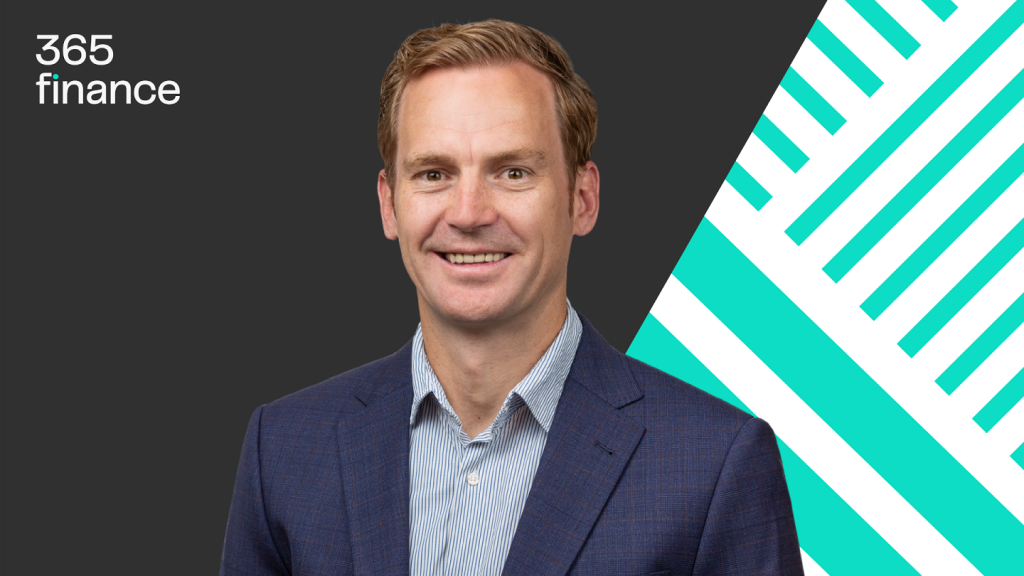
The union between UK lender LDF and brokerage First Independent Finance sees the group become the biggest of the new model of ‘hybrid’ lenders, based on its £400m annual originations. Brian Cantwell talks to LDF managing director Peter Alderson and First Independent Finance managing director Allan Ross about the deal and how they want to grow that figure.
UK broker/funder hybrid LDF has acquired Scottish broker First Independent Finance (FIF) in a deal that sees it become the biggest broker/funder ‘hybrid’ in the UK, based on the combined 2015 loan origination of approximately £400m (566.77m).
Chester-based LDF has spent two years on the acquisition trail, with a war chest provided by private equity firm Cabot Square, eyeing the right fit for its business.
Both businesses will retain their distinct branding and identities, although there will now be reference to the LDF Group in marketing materials, and First Independent Finance managing director Allan Ross joins the board at LDF.
When Leasing Life caught up with LDF managing director Peter Alderson and FiF managing director Allan Ross, both were keen to stress that a stringent list of criteria were tested before both parties agreed to ink the deal.
Asset match
How well do you really know your competitors?
Access the most comprehensive Company Profiles on the market, powered by GlobalData. Save hours of research. Gain competitive edge.

Thank you!
Your download email will arrive shortly
Not ready to buy yet? Download a free sample
We are confident about the unique quality of our Company Profiles. However, we want you to make the most beneficial decision for your business, so we offer a free sample that you can download by submitting the below form
By GlobalDataCrucial for the newly-formed Group is that the businesses are complementary and that there is no competition in terms of the clients the group wants to attract.
First Independent tends towards hard assets, serving the construction, agriculture, transport and renewable energy markets, with its heartland assets being trucks, heavy plant equipment and construction site equipment.
LDF specialises in SME business loan products, with a growing asset finance offering, which is aimed at the soft asset market.
Alderson says: "We have been looking now for nearly two years to find the right acquisition on the asset side. The business has been growing it’s asset base but is still primarily a loans business.
"We looked at a few people, and we’ve been talking to Allan and his team there to put a deal together, and the reason is that we see an absolute natural fit between a business that is a market leader in the professional and corporate loans space, and FIF , one of the best brokers in the country."
With the absence of an product clash, the companies can now draw on the offerings of the other, meaning that the product range is vastly expanded for both business and that the group can offer a great range of products to corporate clients.
Alderson added: "They’re primarily hard assets; we’re soft assets and loans. You couldn’t find a better fit from a product and distribution channel point of view, so it’s all an increase of what we do already. There are no more than a handful of clients which are common to both businesses so that works from our point of view."
"So this is a coming together of two market leaders into the biggest market hybrid, where having the funder/broker function sitting together in the same business gives much better capability for our clients.
"We are pretty excited about it. We also think that a lot of the support functions that we have to support our business, the infrastructure, the marketing, will enable FIF to be even better than they are now, by giving them that support and letting them use that."
Cultural fit
Both Alderson and Ross were keen to stress that the matching in culture of the businesses was the tipping point for the deal to get over the line.
LDF had looked at other businesses while looking to buy, and Ross had offers for FIF, but it wasn’t just a money issue.
"To me it’s a cultural fit," says Ross.
"The two businesses have the same principles, the same view on compliance, the same view on treating customers fairly, and a consistency of purpose that we have built up over the past three or four years since the Investec took ownership, and Allan’s business has had since it began," says Alderson.
Ross also values the cultural match as key: neither side wanted a deal where the management team walked away.
Ross says: ""Most people when they exit do so at the wrong time. They wait until retirement, they wait until the market changes, they are not prepared for it, they don’t know the type of person that they are selling to, they don’t know how to handle the staff – it comes as a bit of a surprise," says Ross.
"Back in 2008 when the recession started, we had already put together an exit strategy, partly because I’d studied exit strategies. What became very clear to [FIF] as I started to look at this strategy was that reputation was absolutely key You had to make sure that your reputation was unquestionable.
The strategy for an eventual exit was to build the business from the foundations up, including investing in the careers of its staff.
"We embarked on building a very strong business from a reputation point of view. We realised that we had to have good data and good systems, we realised that our staff had to be kept informed of what was going on as we built a business, so we have never hidden the idea of an exit from our staff. They are aware that they have stronger futures and careers.
"We said we would build a stronger brand, build better systems and refresh our marketing, and we will lose a bit of money in the process, but we will come out of the recession stronger than when we went into it."
"We’ve always been very focused that the people at FiF who helped us build the business are looked after: we are very people-orientated," says Ross.
"As a result, we have held an ‘Investors in People’ gold certification since 2008-2009, so we have made everyone aware that idea of having an exit strategy was that so you’re given some real consideration to what you are looking for, and preparing for it," says Ross.
And so it appears that now the investment and planning has paid off, with the human resources at FF being prioritised in the acquisition.
Alderson added: "There’ll be no changes in staff, certainly no negative effect on any staff. Allan will be joining the LDF board, with responsibility for growing the FIF business and also working out with Andy Davies, LDF’s Sales Director how we deliver more product to the wider group client base.
Maintaining identities and funder relationships
The UK’s asset finance brokerages have strong regional identities, with the best brands carrying strong recognition in the local marketplace. LDF and First Independent have been doing business since 1986 and 1999 respectively, so both businesses have had the long exposure to the market.
Alderson says: "We recognise that we have two pretty strong brands, so we will be operating under those two brands. Allan will be running First Independent Finance as it is now – the difference is that a part of that business will be coming into the LDF group for funding."
The funders that have worked closely with both lenders are still valued as essential.
"One of the things that we have been clear about is that the funders that have supported both Allan’s business LDF are still very important to us," says Alderson.
"Having those funders in place is as important as it always has been. Where we want to get to is that we create a bigger pie so that we can grow our funders share and our achieve our own book growth at the same time.
Targeting growth
Based on 2015 forecasts, the businesses arrange a combination of £400m across their respective sectors: First Independent accounts for about a quarter of that.
Alderson says that it hasn’t stopped here. "This is a deal for growth. We expect significant growth next year across all of our businesses
"We want to take that to £500-£600m and then we can do more of our own book and funders can have more," he says. We have several initiatives underway to get there. We still have an appetite to acquire businesses but finding the right one’s in today’s market is not easy.
We have lots going on organically to get us to these numbers. We have started offering funding to the broker network, we are a principal with the FCA which gives us opportunities to take on the right ARs and we have a plan to recruit significantly sales resource into both into the LDF and FIF brands. We have something that we will to bring to market in Q1 next year on the digital side which could open up a whole new area of business for us which is very exciting."
Funding gap, or a gap in understanding?
One of the upshots from this regional consolidation (LDF are based in Wales; FiF in Scotland) is that it chimes in with regional growth that the British Business Bank and others have been advocating.
"LDF are based in Wales, we’re based in Scotland, and the government is talking about wanting to get money out into the regions; it’s also an interesting deal on a national level for the UK," says Ross.
"Lots of people who could build regional growth are put off because a bank says no – people give up if they get refused finance, because they don’t know where to go and they don’t know how to access it. The National Association of Commercial Finance Brokers has been raising awareness on this for years," says Ross.
One of the other issues is a question of understanding and semantics about the phrase ‘alternative finance provider’.
"The alternative finance provider is businesses like Peter and I, who are operating in the peripheral of the banks are doing," say Ross.
Alderson says he has an issue with the term as it causes confusion and is associated by many potential clients with some of the consumer businesses who have given the lending market a bad name.
"A better term would be complementary finance. We don’t want to replace the bank, all our clients have a banking relationship, but we want to provide product where we are specialist and the bank is not"" says Alderson.







